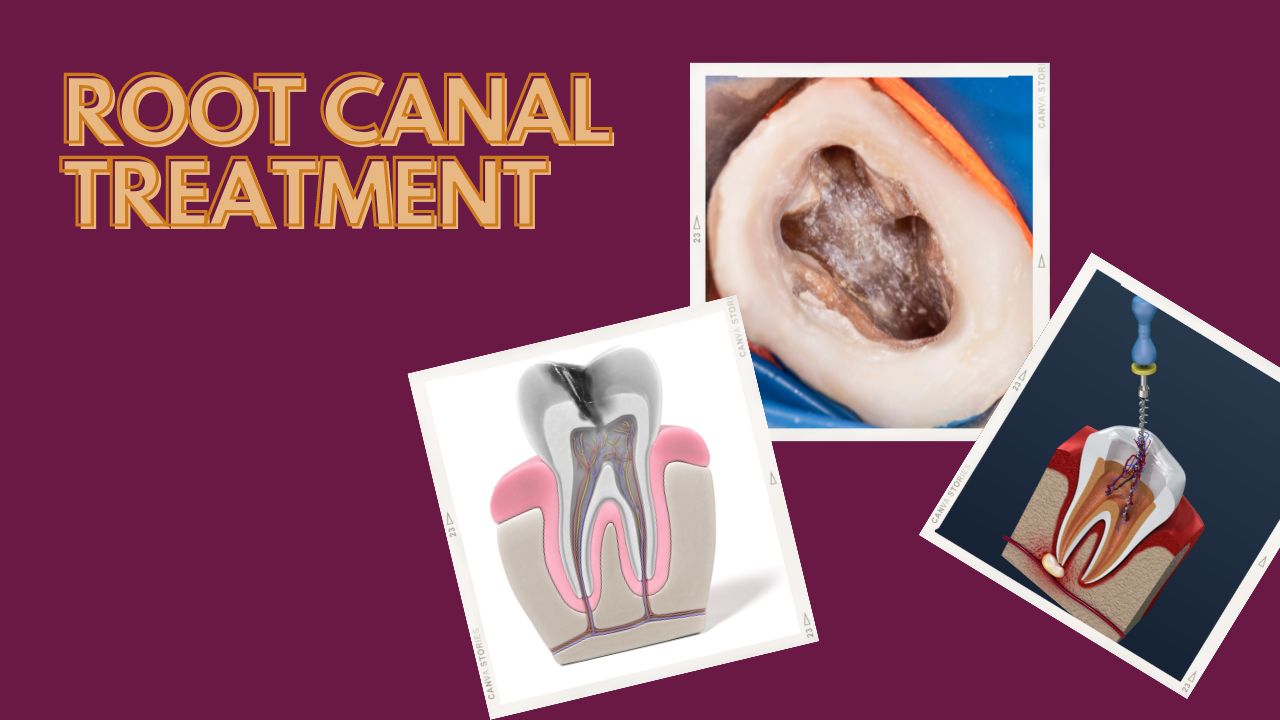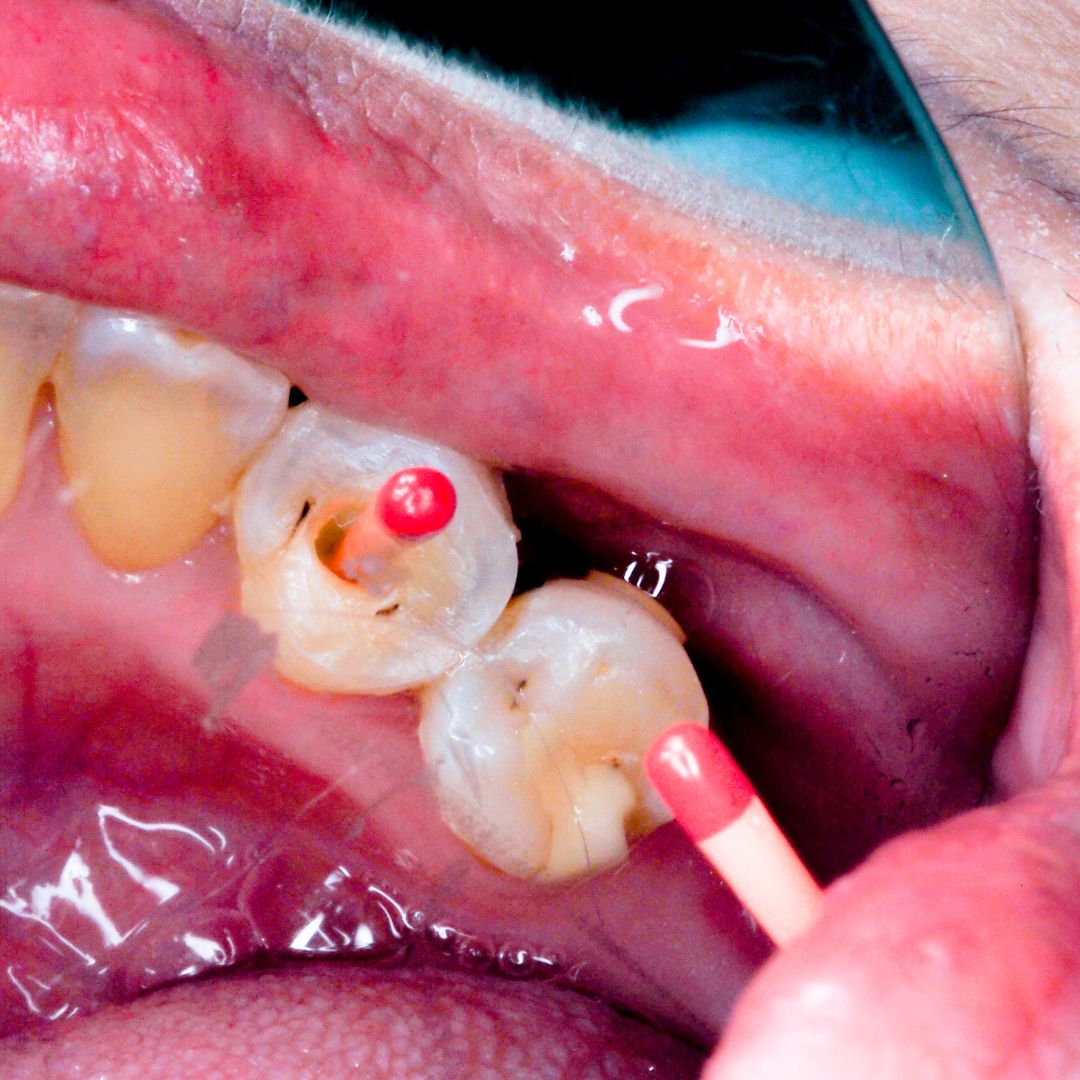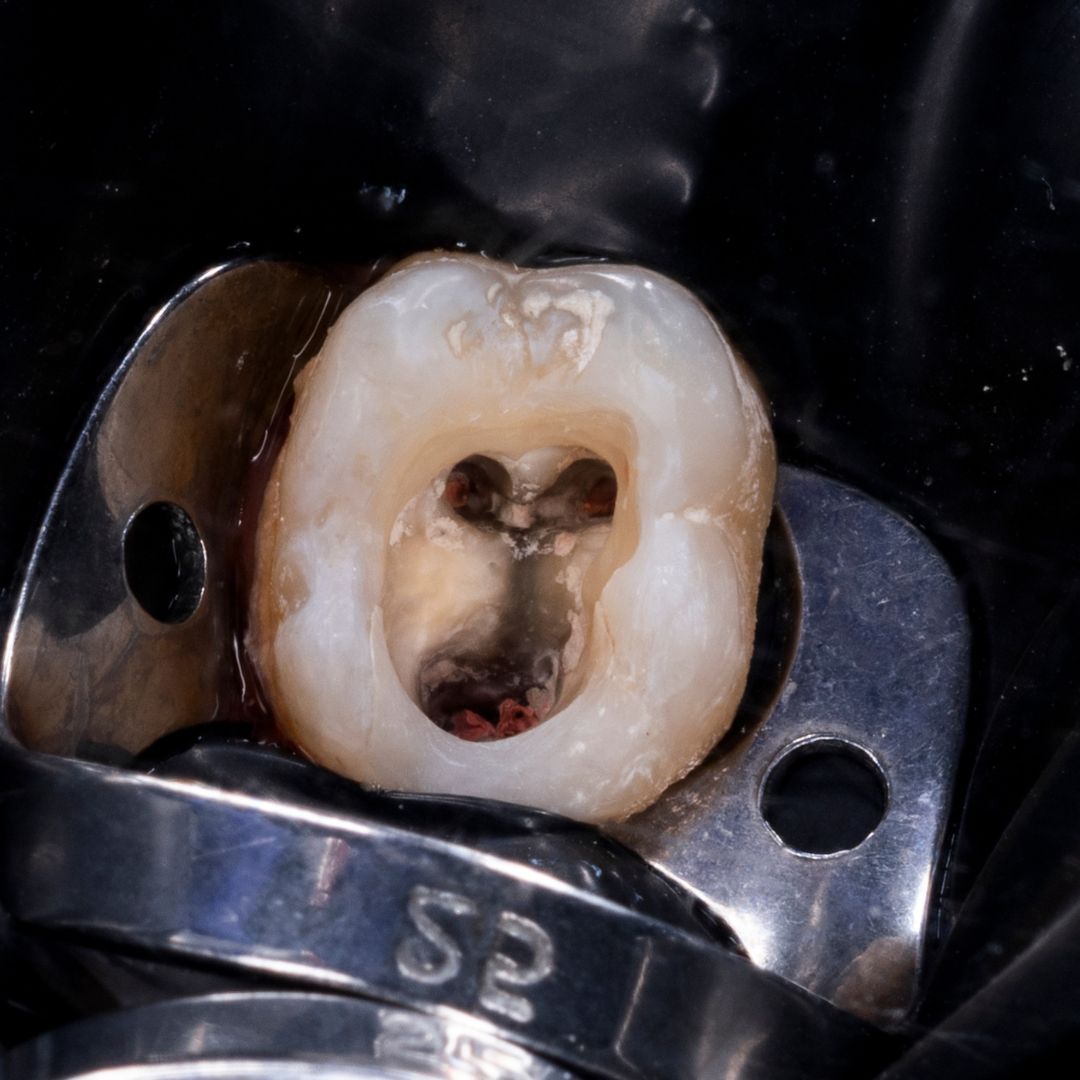Root Canal Treatment

What is Root Canal Treatment?
- Root canal treatment is performed to save a decaying tooth with infected pulp.
- The pulp is the innermost part of the tooth containing blood vessels and nerve endings.
- When a cavity extends to the pulp, it causes inflammation, pain, and discomfort.
The 6 Steps in Root Canal Treatment Procedure are:
- Access to the innermost layer of pulp by drilling through the decayed portion.
- Location of canals extending into the roots, and removal of infected tissues.
- Cleaning and disinfecting of canals, and filling with an inert biocompatible material.
- Placement of a fibre post in one of the canals to strengthen the tooth.
- Restoration of the decayed portion of the tooth with a permanent filling.
- Fixing of the crown of material of your choice onto the tooth for added protection.
What is the after effect of a Root Canal Treatment?
The principal outcomes of Root Canal Treatment are:
- Elimination of pain and infection caused by tooth cavities.
- Healing and protection of the underlying structures of the tooth.
- Restoration of normal tooth function.
- Mild pain is common for a couple of days as the infection reduces.
- Pain medication and antibiotics may be prescribed for healing.
- If pain persists longer than a few days, inform the dentist.
What are the protocols to follow after a Root Canal Treatment?
The recovery after the treatment depends on how you take care of your teeth. Some of the practices to follow after a root canal treatment:
- Lessen the strain on the treated tooth. Avoid using the treated tooth to chew on hard and crunchy food, doing so can adversely affect the tooth. Do not grind the teeth.
- Ensure that you keep up your oral hygiene by following proper oral habits.
- Do not brush your teeth carelessly or aggressively, it can cause damage to the treated tooth.
- Protecting the root canal-treated tooth by placing a crown, especially if it involves a molar and pre-molar tooth, is usually required to avoid breakage of the tooth.
- Do not skip your follow-up appointments advised by the dentist.
- Take painkillers and medicines as prescribed by the dentist.
- Try to avoid chewing with the tooth for a brief time after the treatment
- Brush, floss, and use mouthwash regularly
How to know that you might require a root canal treatment?
You will know you require a Root Canal Treatment when your teeth start to feel very sensitive to hot or cold food or drinks, sharp pain when you eat sweets, and pain when you bite and chew food. The pain may be a sharp, stabbing type or dull aching type, continuous or intermittent. The symptoms vary depending on the stage of infection.
And as the infection continues to grow you might feel that the pain has disappeared and the tooth has healed but that is not the case. Pain vanishes when the pulp is completely infected and dead. This, in turn, leads to further progression of the infection beyond the tooth and into the surrounding bone and tissues. At this stage, you will experience more adverse symptoms such as
- Bulging of the gum adjoining the infected tooth.
- Pus discharge into the mouth through gums (salty taste in the mouth)
- Pain starts to occur again while consuming food or even just touching the tooth.
- The tooth starts to darken in colour.
- All these cause a swollen cheek or jaw.
If left untreated, the infection can damage the entire tooth making RCT less effective and the infection can spread to adjacent teeth as well.


How successful is a Root Canal Treatment?
The survival of the tooth under nurture can depend on a number of factors such as the number of healthy teeth remaining, general health condition, diet, maintenance of the teeth, and the force you apply while chewing food after the treatment. Around 9 out of 10 RC-treated teeth usually survive for 8 to 10 years with a good crown. Fixing a crown increases the survival rate. RCT is usually successful in rescuing the tooth and clearing the infection.
Root canal treatment is a repetitive process and if the infection recurs the dentist will repeat the procedure. The dentist will perform where the tip of the root will be surgically removed to treat the infection.
What is the cost of a Root Canal Therapy?
The cost of a Root Canal Treatment in Bangalore can vary between Rs 5000 to Rs 8000 or more.
The charges are different for different patients depending upon the following factors
- An extensively damaged tooth may require posts to strengthen it, which increases the cost and so, the complexity of the case is a factor in the cost.
- If we perform root canal treatment manually which involves multiple visits to the dentist or by rotary instrumentation which involves a single visit. We carry out rotary root canals very precisely and are more expensive.
- The experience of the dentist, the clinical infrastructure and the type of materials used. Cases performed by endodontists who are root canal specialists tend to cost moderately more.
